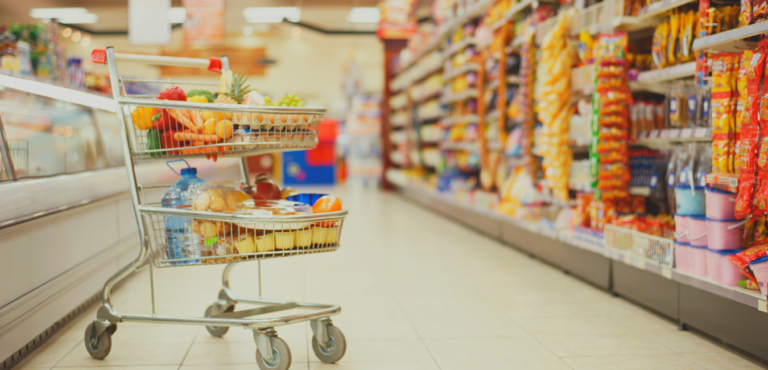
When you’ve grow accustomed to your local grocery store it’s not at all surprising that you may feel cast adrift when you migrate and are faced with grocery shopping in Jamaica. It can be helpful to familiarize ourselves with some of the basics before we set out.
Most people in Jamaica shop in a variety of places; supermarkets, markets and local shops. Supermarkets are usually open until 9.00 or 10.00 pm, but you will not find 24 hour supermarkets. Markets usually close at around 5.00pm but may be open later at the weekends and small local shops have more irregular opening and closing hours.
Jamaican food tends to be well seasoned, meat may be seasoned from the night before, and cooked from scratch and there is no tradition of using precooked or frozen meals. Cooking, therefore, takes up a larger part of the day, than you may be accustomed to.
Fast food chains have become popular in recent years. KFC, Popeyes, Burger King, Wendy’s, Dominos etc are all present in the towns and you can also buy Jamaican patties (beef, chicken ,vegetable or other fillings) from Tastee, Mother’s, Juici etc.
US yam is called sweet potatoPotato is called Irish Potato. Yam in Jamaica is a different tuber of many varieties (sweet yam, Renata yam, yellow yam, soft yam etc. Other tubers include cassava, dasheen, coco etc.
Green (unripe) bananas are boiled and eaten as a starch, the fruit is referred to as ripe banana.
Generally, starches are referred to as “food”, so if you are asked what food you would like, it refers to the starch.
Saltfish (salted cod) is part of the National Dish together with ackee, which should only be eaten when the red pods are open. It is best to consult a Jamaican as to preparation.
Calaloo is similar to spinach in flavour, but requires more preparation as the stems need to be stripped.
Seasoning refers to items added for flavour such as onion, scallion, thyme and scotch bonnet (hot pepper) and powdered seasonings have gained in popularity.
Jamaicans may use the word “salad” to refer to a slice of tomato and cucumber with a little shredded cabbage, more like a garnish than an actual salad!
Tea can refer to any hot beverage usually drunk in the morning or if you are unwell (cocoa tea, green tea, black tea, coffee tea etc). We are also great believers in bush tea (medicinal teas) which grow locally, such as mint tea, moringa, jack in the bush, ram goat dash along, cerassee, ginger etc. Tea is often very sweet and I would suggest that you ask for any specific milk (cow’s milk, condensed milk, evaporated milk, soya milk) or sugar to be served on the side so that you can decide how much you would like.
Traditional Jamaican bread is “hardo” twice kneaded, heavy white bread. Brown bread, whole meal, wrapped bread can be obtained in supermarkets.
We all take our familiar (or comfort) foods for granted and when we travel or live abroad we are surprised to find what is not available and what we miss. Many foreign foods are available in the larger supermarket chains (Pricesmart, Megamart, Progressive, Shopper’s Fair and Hilo), but they are not always consistently available. It is a good idea to buy it when you see it, and if you really love it, buy a good supply; they will not necessarily reorder when it runs out.
Of course, there are now options to order online and have items delivered to your door (if you live in the city) or brought in from overseas. However, many people still prefer to physically go grocery shopping in Jamaica so they can pick, choose and refuse as they wish. You will also notice there are no self-checkout stations in any of the supermarkets.
Smaller market stalls are easier to deal with than the large markets, which can be overwhelming and lack parking facilities. Remember, fruit stalls, market stalls and small shops will deal with cash, not cards and the exchange rate if using US$ may not be favourable to you.
Do not feel daunted by grocery shopping in Jamaica. Jamaican food is fresh, tasty and in good supply, so don’t be afraid to try something new; you will certainly enjoy it!